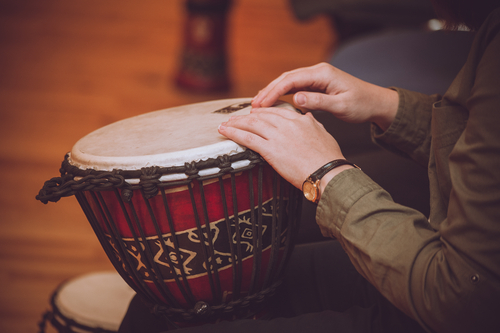
Grieving Our Addictions
March 5, 2020
The Role of Family In Recovery
March 13, 2020If there is one thing that many of us humans have in common, it’s a love for music. From the time we’re little to well into adulthood, we spend a lot of time listening to songs that make us feel certain ways. Music has a mysterious way of connecting with our mind, body and soul – and many people find that music can reach deeper levels of ourselves that simple conversations can’t. If you’re a music lover, then you probably comprehend just how significant of an influence music can have on our lives. We listen to it on the radio, we play it on our phones, we sing a song with no music at all – because oftentimes, we can’t get these songs out of our head!
Emotional Impact
There are four main ways that music impacts us, including through our emotions. Through specific brain circuits, music can stimulate our emotions. That’s why mothers sing to their babies, and why certain songs can make us cry or feel sad, even if we were feeling pretty content beforehand. Music can also reach us on a subconscious level, helping us process grief, pain, fear and more. There is a part of the brain that associates memories and music; it is through this that we can often recall certain events of our lives that occurred alongside a certain song that was playing, or why a particular rhyme helped us memorize history material in high school. Neuroplasticity is what helps our brain heal from injuries and diseases while also helping us respond and adapt to new situations. Music has been used to help so many people with a variety of health issues increase their learning capabilities because of music’s ability to enhance our neuroplasticity. Music can effectively activate, sustain and maintain our attention. When you hear a song, do you find it easy to get so wrapped up in it that you sing it the entire way through? For people who are recovering from addiction, music can greatly help them tune into the present moment if the right songs are played.
Drawing Inspiration from Music
Since music can greatly influence our mental, physical and spiritual health, it would make sense that with the right type of music, those in addiction recovery can feel more inspired if music is involved. Music gives us a chance to hear someone else’s story – someone whom we can relate to and trust, and someone who has felt the pain we’ve experienced before. If you’re looking for some truly inspirational songs for recovery, consider the song “Recover” by Natasha Bedingfield. She sings about the pain and scars of surviving, as her song talks about walking through fires – and still surviving. The song “Sober” by P!nk is another famous one, as she wrote this song to discuss how great it feels to live a sober life. If you’ve ever heard the song “Starting Over” by Macklemore and Ryan Lewis, you’ll find that after having relapsed after 3 months of sobriety, Macklemore sings about the pain he felt in relapsing but also the immense inspiration he felt after he recovered. Amy Steinberg’s song, “Exactly” is a spiritual song that promotes hope, positivity, love and light. In this song, she sings about the “here and now” and the fact of how important it is to trust in the process. Lastly, Andy Grammer has a song that’s called “Workin’ On It” and it’s about how powerful those small steps are in recovery – even if they aren’t recognized by other people.
Of course, inspiring songs of recovery can be found in a wide selection of genres; thankfully, more artists are starting to become more open about their struggles with addiction and it’s becoming more widely talked about in songs, which then makes it easier for other people to relate to and heal from.
Music Therapy
Listening to music isn’t just an activity we listen to on our own – it can become incorporated into therapy, too. Music therapy is about a therapeutic relationship aimed to improve the mental, physical and spiritual health of a person, as they may have certain issues that need to be worked through. Previous studies have sought to explore how music therapy can benefit those in recovery; these studies found that music therapy had very beneficial effects on many participants’ emotional expression, group interaction, development of skills and an improvement in their overall quality of life. Most people believe that they have to have a special talent or skill set to pursue music therapy, but that’s not the case. In fact, music therapy is more about healing than it is of seeing the talent of a particular person.
There are addiction treatment options available to fit your needs during this time, especially if you can not afford long-term treatment. At The Kimberly Center, we offer intensive outpatient and outpatient treatment services, sober living, and continuing care options. Our professional staff can help you understand why you feel the way you do, recognize the signs of relapse, and course-correct before you start using again. And if you do relapse, that is okay too – we are here to get you back on track and healthy again. Call us any time, day or night, to speak to an addiction counselor at 855-4-KCENTER (855-452-3683). You are not alone, and The Kimberly Center is here to help.




